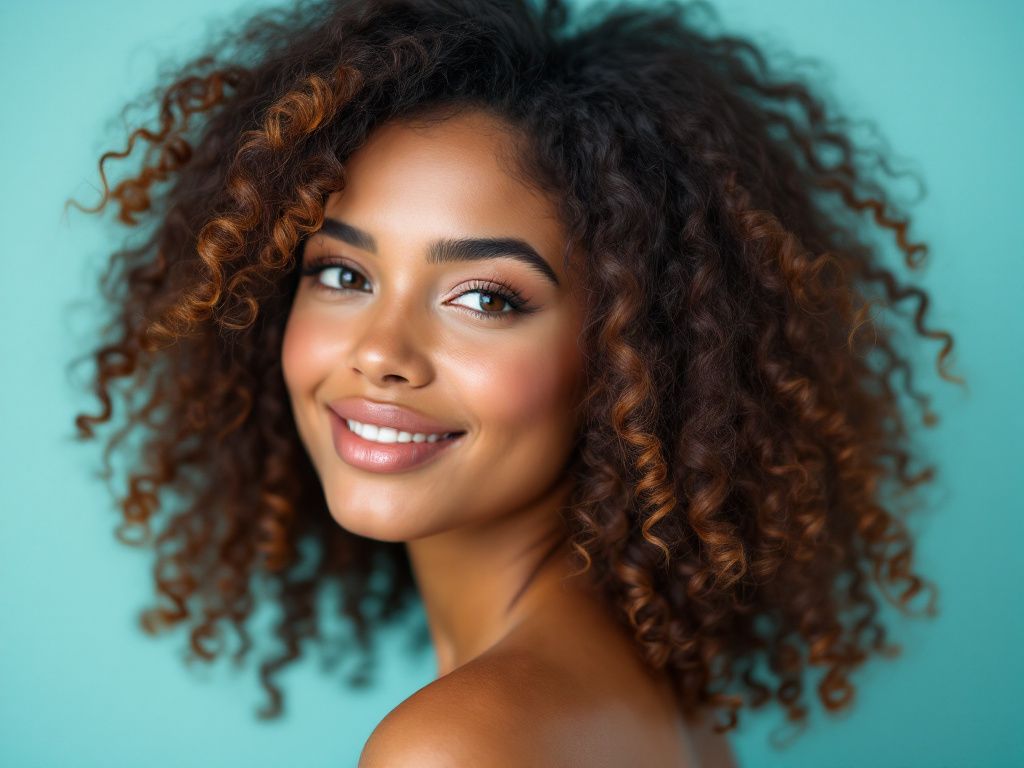
Curly hair care is a nuanced field that requires an understanding of unique structural attributes that distinguish it from other hair types. Its curly nature is primarily due to the oval shape of hair follicles and a distinct pattern of disulfide bonds between keratin proteins. This structural feature makes curly hair more susceptible to dryness and breakage due to its limited ability to retain moisture and distribute natural oils from the scalp.
Key Considerations for Curly Hair Health
**Hydration and Moisture Retention:** Curly hair is prone to losing moisture quickly, leading to common problems like frizz and tangling. Clinical studies suggest that using products containing hyaluronic acid, glycerin, and panthenol can improve moisture retention (Smith et al., Journal of Cosmetic Science, 2019). Products such as the *Olaplex No.6 Bond Smoother*, with its bond-building technology and moisturizing agents, are effective for this purpose.
**Protein-Balancing:** The dynamic structure of curly hair necessitates a balance between protein and moisture. While moisture provides flexibility, protein restores strength. Hydrolyzed proteins, such as keratin and silk protein, decrease the porosity of hair, enhancing resistance to breakage. The *DevaCurl Heaven in Hair* provides a rich blend of proteins and fatty acids that restores both strength and hydration, tailored to meet the needs of curly types.

Tailored Approach to Curly Hair Types
**Type 2 (Wavy):** Products should focus on enhancing wave pattern without weighing down the hair. The *Ouidad Advanced Climate Control Featherlight Styling Cream* replicates scientific principles of anti-humidity technology, using wheat protein and polymers to lock in definition while combating environmental stressors.
**Type 3 (Curly):** These curls benefit from deep conditioning treatments rich in emollients and humectants. The *Briogeo Curl Charisma Chia + Flax Seed Coil Custard* is specifically formulated to support curls with high slip and moisture retention, thanks to a blend of chia seed oil and flaxseed extract.

**Type 4 (Coily):** Coily hair typically requires denser products to ensure adequate moisture absorption. Shea butter, cocoa butter, and oils like jojoba or avocado have demonstrated efficacy in enhancing the pliability of type 4 hair (Brown and Hassan, International Journal of Trichology, 2020). The *SheaMoisture Manuka Honey & Yogurt Hydrate + Repair Protein-Strong Treatment* provides intensive moisture and nourishment, ideal for preventing breakage in coily curls.
Addressing Common Concerns
**Frizz Management:** Environmental humidity affects curly hair significantly. Studies highlight the utility of polymers like polyquaternium and dimethicone in forming a protective sheath around the hair shaft to minimize frizz (Johnson et al., International Journal of Cosmetology Science, 2018). The *Living Proof No Frizz Nourishing Styling Cream* utilizes such technology, incorporating OFPMA, a proprietary molecule that outperforms traditional silicone-based products.

**Scalp Health:** Curly hair challenges are not solely limited to the strands themselves. Healthy hair growth is contingent upon balanced scalp conditions. Clinical evidence supports the inflammation-reducing properties of tea tree oil and the moisturizing abilities of aloe vera. The *As I Am Dry & Itchy Scalp Care Cowash* combines these key ingredients to alleviate common scalp issues, facilitating vital hair growth and well-being.
In conclusion, effective curly hair management hinges on understanding its specific needs related to moisture, strength balancing, and minimizing environmental stressors. Evidence-based product selection enhances these elements, supporting vibrant, healthy curls. A personalized regimen, grounded in scientific research and formulated for particular curl types, remains central to optimal hair health.
Frequently Asked Questions
What are the evolutionary benefits of curly hair?
Curly hair, particularly tightly curled hair, provided early humans with significant protection from the sun’s radiative heat, helping to conserve water and facilitate brain growth. This adaptation was crucial for regulating body temperature and enabling the human brain to develop to modern-day sizes[2).
How common is curly hair across different populations?
Curly hair is not exclusive to any one population, although its prevalence varies. Approximately 65% of people globally have some degree of curl in their hair, ranging from loose waves to tight coils. In specific populations, such as those of African ancestry, curly hair is more common, while in Asian populations, straight and wavy hair are more prevalent[1][4).
What are some common challenges associated with curly hair?
Curly hair often presents challenges such as frizz, dryness, damage, and difficulty detangling. These issues can be managed with the right products and techniques, such as using sulfate-free shampoos, deep conditioning treatments, and styling products designed for curls[4).
Why is it important to have diverse research on curly hair?
Research on curly hair has often been limited to samples from African ancestry, which may not represent all curly hair types. There is a need for more diverse studies to understand the physical, biological, mechanical, and chemical features of curly hair across different ancestries, ensuring that findings are not generalized based on limited sample pools[1).
References

Leave a Reply